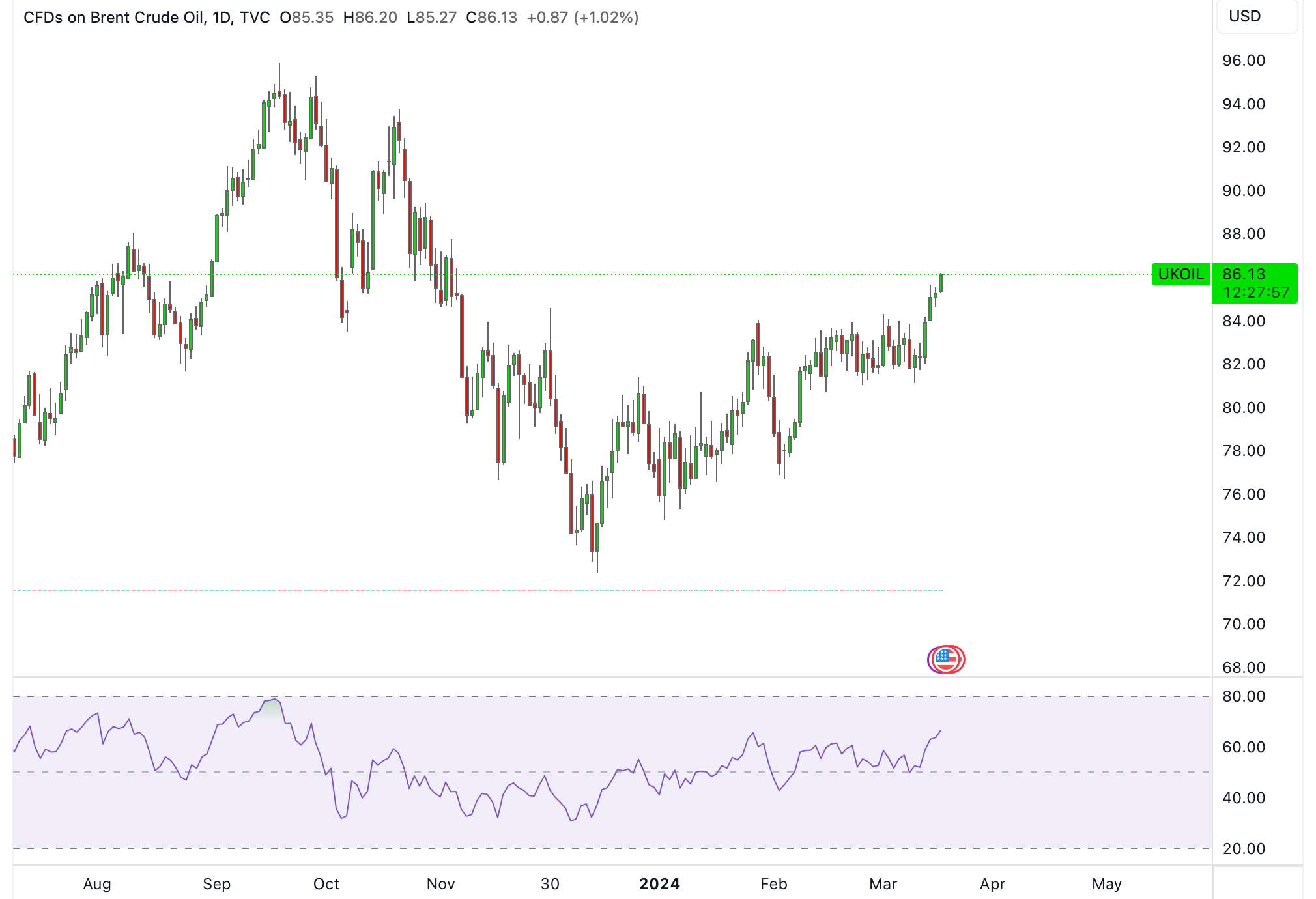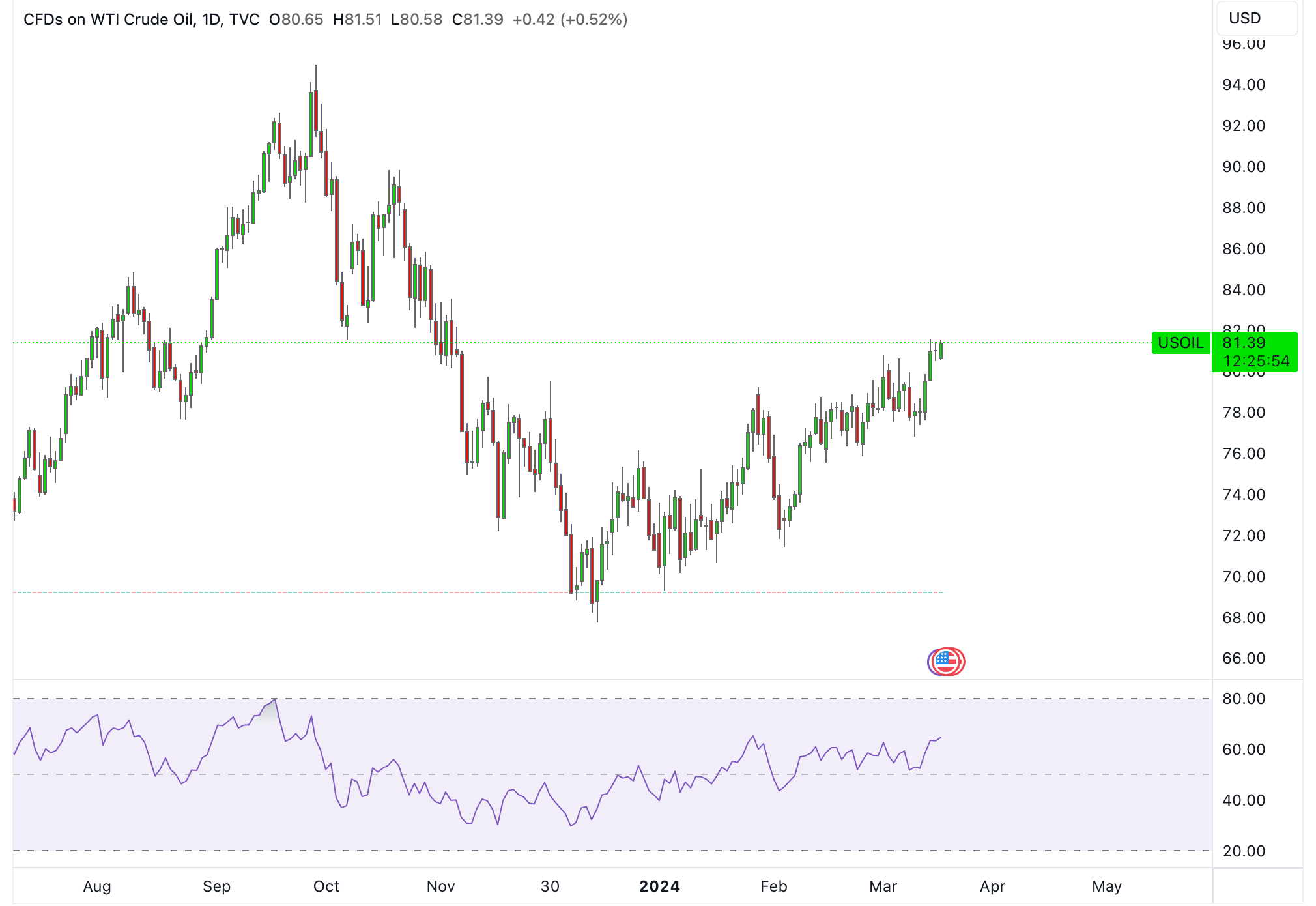Oil prices have seen a noticeable increase early on Monday, primarily due to concerns over potential supply shortages. These worries stem from further attacks on Russian energy facilities, which could disrupt the flow of oil.
BRENT CRUDE AND WTI SEE AN UPTICK
CFDs on Brent Crude Oil posted an intraday high of $86.20 and intraday low of $85.25. Oil is currently trading at $86.13 (2:32pm Monday, 18 March 2024 (GMT+5) Time in Pakistan).
CFDs on WTI Crude Oil posted an intraday high of $81.51 and intraday low of $80.58. Oil is currently trading at $81.39 (2:34pm Monday, 18 March 2024 2024 (GMT+5) Time in Pakistan).
Both oil benchmarks enjoyed a gain of over 3.85% last week, attributed to a surprising decrease in U.S. oil stockpiles.
IMPACT OF ATTACKS ON RUSSIAN REFINERIES
According to Vandana Hari of Vanda Insights, the recent assaults on Russian oil refineries have led to a $2-$3 per barrel risk premium on crude prices. This premium remains as the market enters a new week with additional attacks over the weekend.
GEOPOLITICAL TENSIONS AND MARKET REACTIONS
The oil market is also keeping an eye on developments in the Middle East, notably Israeli Prime Minister Benjamin Netanyahu’s recent actions, which have stirred concerns among international allies. These geopolitical movements could further influence oil prices and market stability.
AWAITING THE FEDERAL RESERVE’S DECISION
Investors are particularly focused on the upcoming decision from the U.S. Federal Reserve, which could provide insights into future interest rate cuts. Such decisions have significant implications for economic activity and, consequently, oil demand in the U.S., the world’s largest oil consumer.
OIL DEMAND AND SUPPLY FORECASTS
The International Energy Agency has revised its oil demand outlook upwards, amid disruptions and attacks affecting shipping routes. This has led to a prediction of a slight supply deficit for the year, indicating potential upward pressure on prices.
U.S. FUEL DEMAND LENDS SUPPORT
The demand for fuel in the U.S. has also contributed to rising oil prices, as refineries wrap up various projects. This increased demand, coupled with the adjusted supply forecasts, paints a complex picture of the global oil market moving forward.
In summary, the oil market is currently navigating through a maze of geopolitical tensions, supply disruptions, and economic policy anticipations. These factors collectively shape the trajectory of oil prices, highlighting the interconnectedness of global events and energy markets.





















